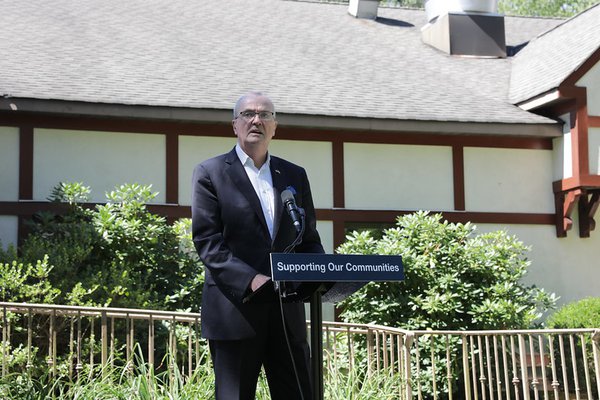County officials in New Jersey will now be called “county commissioners” instead of “chosen freeholders” after Gov. Phil Murphy signed legislation outlawing the latter title from public office across the state. “Boards of chosen freeholders” will now be referred to as “boards of county commissioners.”
- MORE NEWS
- South Jersey woman handed prison sentence for 'senselessly' killing her wife
- This map shows the locations of Access Centers where Philadelphia students can take classes virtually
- New Jersey diner repeatedly violates state's indoor dining prohibition
Counties are also now required to update their letterhead, stationery, and websites to reflect the title change by the end of 2021.
The new law, however, does not require counties to update or replace signs or other writings to reflect the title change if doing so would cost money. The title will then be changed whenever the signs or other writings are updated again.
“We have an obligation to ensure that governance in New Jersey is inclusive and representative of the tremendous diversity of our great state,” Murphy said.
“Amid a national reckoning to reexamine vestiges rooted in structural racism, this action will eliminate the use of the term ‘Freeholder’ in county government — a title that is an outgrowth of a time when people of color and women were excluded from public office.”
New Jersey was the only remaining state that used the title freeholder to designate its county government officers.
But state leaders, including Murphy, sought to cut ties with the "outdated" term – a reference to a time when only white property owners could hold elected office. Instead, they favored switching the names of the states' 21 boards of chosen freeholders to "chosen board of county commissioners."
Each county's freeholder board includes several elected members who perform legislative and executive duties.
The title is an English word dating back centuries and refers to someone who owned debt-free land. It was a prominent term when New Jersey was colonized. At the time, only white men could hold public office.
New Jersey did not limit voting rights based on gender or race between 1776 and 1807 – and there were some women who owned land. But white males were the predominant land owners when the elected freeholder position was established in colonial America.
New Jersey did not abolish slavery until 1804. It was a gradual emancipation that allowed some residents to hold slaves decades afterward.
Follow Pat & PhillyVoice on Twitter: @Pat_Ralph | @thePhillyVoice
Like us on Facebook: PhillyVoice
Add Pat's RSS feed to your feed reader
Have a news tip? Let us know.

